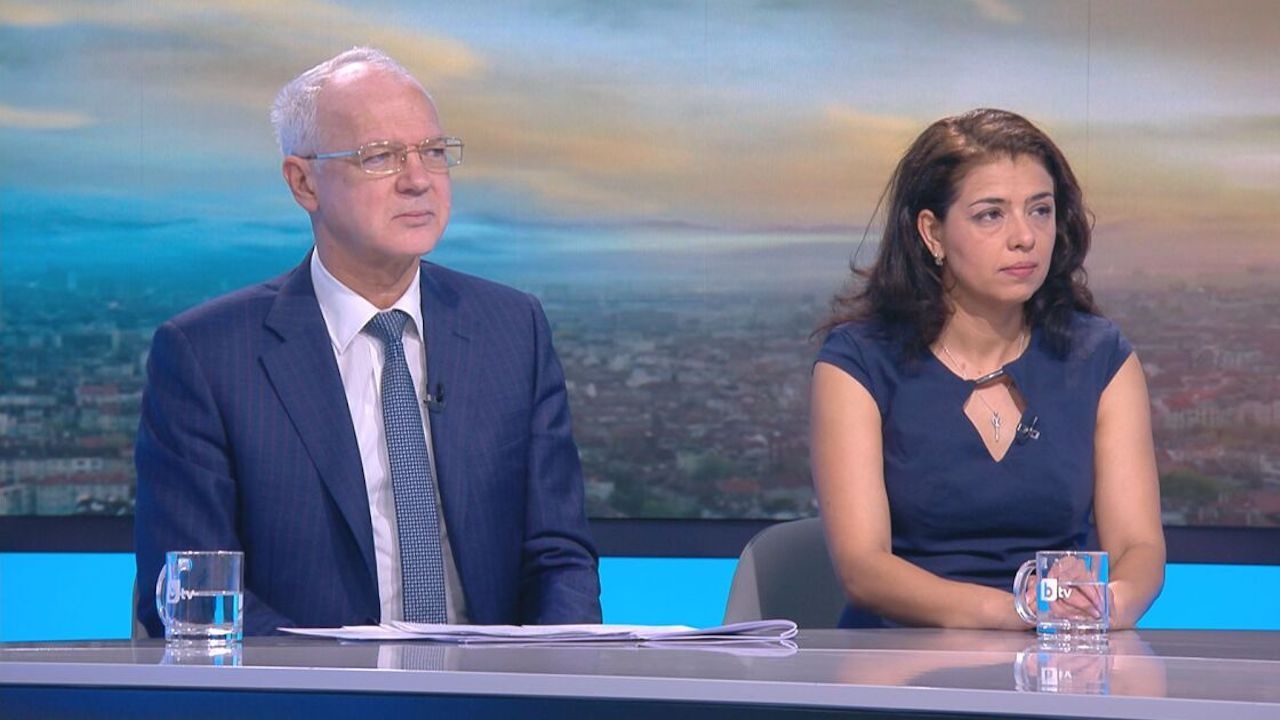Unions and employers cannot reach a consensus on the subject of the minimum wage. This became clear in the show "This Morning", where Vanya Grigorova and Vasil Velev got into an argument.
"A minimum wage of BGN 940 is completely realistic.
This is probably laid down in the Labor Code, i.e.
50% of the average salary for the country.
Such were our expectations - between BGN 950 and 1,000, if we are guided by this formula for determining the minimum wage," said Vanya Grigorova, economic advisor at KT Podkrepa.
Minister Velkova: Starting next year, the minimum wage should become 940 BGN
According to her, the texts in the Labor Code do not allow the social partners to negotiate higher levels of the minimum wage.
She is convinced that these texts will be changed by the deputies in the next parliament.
"The unions lied to the MPs that there is a European directive which dictates that the minimum wage should be half the average wage.
Such a law was adopted and now there is no longer such a conversation - we divide the average salary for a given period by two and get the minimum," said Vasil Velev, Chairman of the Board of the Association of Industrial Capital in Bulgaria (AIKB).
He is adamant that this is a big lie, and that is why AIKB has already contested this in the European Commission and the International Labor Organization.
According to Velev, this law is in violation of international law.
It also became clear that trade unions and employers are currently part of a working group that must propose the relevant changes in the laws to reflect the requirements of the European directive.
"Another question is whether the directive imposes an explicit obligation that the minimum wage be 50% of the national average.
No, she says it is one of the benchmarks in determining the adequacy of the minimum wage.
There is no obligation to be this much, but the EC says that it must be at least this much to be considered adequate.
However, there are other indicators that must be taken into account," explained Grigorova.
"Bulgaria is the country with the highest income growth for the past year.
In the private sector, growth is 17.7% for the last quarter of 2022 on an annual basis.
That's several percentage points above inflation over the same period.
Unlike other European countries, we have ensured wage growth that outpaces inflation," Velev explained.
He is adamant that AIKB is fighting to increase higher labor productivity and a more efficient economy so that people can live better.
Velev advised Bulgarians not to wait for the state to increase their salary, but to improve their qualifications, work in several places or start a small business.
And he pointed out that this year private business will increase wages by 8-10%.
